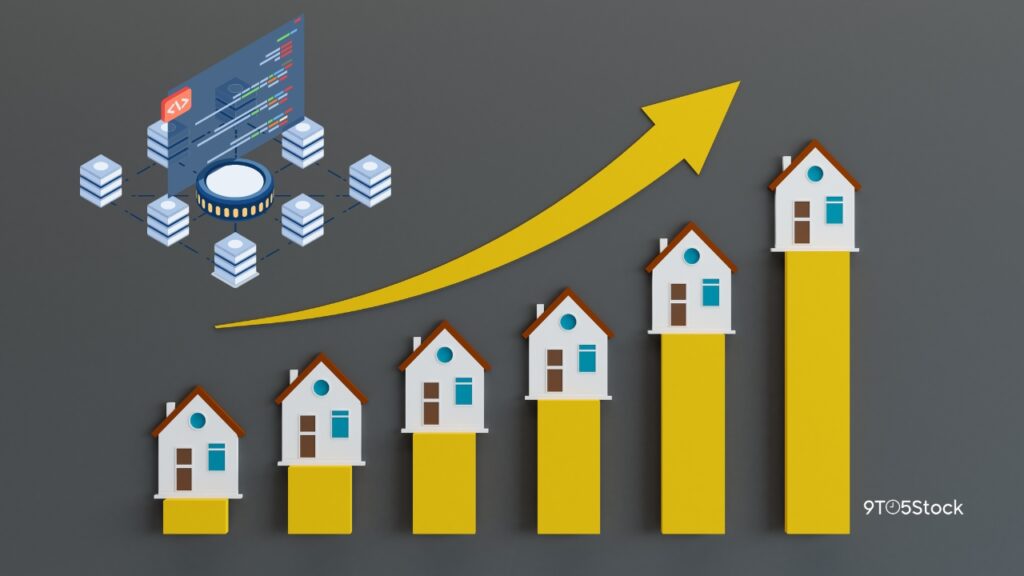Blockchain technology, initially synonymous with cryptocurrencies like Bitcoin and Ethereum, has matured into a versatile platform with applications reaching far beyond digital currencies. As we navigate a future increasingly dominated by digital solutions, understanding how to invest in blockchain technology beyond cryptocurrencies is crucial. This guide explores various avenues, providing an extensive roadmap for investing in this transformative technology.
Understanding Blockchain Technology

Blockchain technology is often likened to a digital ledger, where transactions are recorded and stored in a decentralized manner across a network of computers. This system is built upon the principles of transparency, security, and immutability, ensuring that once data is entered, it cannot be altered without consensus from the network. While cryptocurrencies are the most recognized application of blockchain, the technology’s potential extends into various sectors, fostering innovation and creating new investment opportunities.
To grasp the full scope of blockchain, it’s essential to understand its key features. Decentralization eliminates the need for a central authority, distributing power among all participants in the network. Transparency ensures that all transactions are visible to network members, fostering trust and accountability. Security is achieved through cryptographic techniques that protect data and verify the authenticity of transactions. Immutability guarantees that once a transaction is recorded, it cannot be changed, providing a reliable and tamper-proof system.
The rapid growth of blockchain technology is driven by its ability to address challenges across industries. From enhancing supply chain transparency to streamlining financial transactions, blockchain is revolutionizing how businesses operate. Its adoption is no longer confined to tech startups or the financial sector; traditional industries are embracing blockchain to gain a competitive edge and improve operational efficiency.
As an investor, it’s crucial to recognize that blockchain is not just a buzzword but a fundamental shift in how data is managed and transactions are executed. By investing in blockchain technology, you are positioning yourself at the forefront of this digital revolution, tapping into a market that is expected to reach new heights in the coming years. In the following sections, we will delve into specific areas where blockchain is making a significant impact, providing insights into how you can capitalize on these opportunities.
The Growth of Blockchain Applications
Blockchain technology has transcended its original purpose of facilitating cryptocurrency transactions, expanding into diverse sectors and industries. This evolution is driven by the technology’s inherent advantages, including enhanced security, transparency, and efficiency. As blockchain continues to mature, its applications are becoming more sophisticated, offering a wide range of investment opportunities.
One of the most promising areas for blockchain investment is supply chain management. Blockchain can enhance traceability and transparency, allowing businesses to monitor the movement of goods in real-time. This not only reduces the risk of fraud and counterfeiting but also improves operational efficiency. Companies like IBM and Maersk have already implemented blockchain solutions to streamline their supply chain operations, setting a precedent for other industries to follow.
In the healthcare sector, blockchain is being used to improve data management and security. By providing a secure and decentralized platform for storing and sharing patient data, blockchain can help reduce errors, prevent data breaches, and enhance patient care. Startups like Medicalchain and Gem are at the forefront of this innovation, offering solutions that leverage blockchain to address healthcare challenges.
Investing in blockchain startups is another avenue for investors seeking exposure to this burgeoning market. These startups are developing innovative solutions across various industries, from finance and real estate to energy and logistics. By investing in these companies, you can support the development of cutting-edge technologies and potentially earn significant returns as these startups grow and mature.
Publicly traded companies are also adopting blockchain technology to improve their operations and develop new products and services. Companies like IBM, Microsoft, and Overstock.com have integrated blockchain into their business models, offering investors a way to gain exposure to blockchain through the stock market. Additionally, blockchain ETFs provide a diversified approach to investing in blockchain, allowing investors to invest in a basket of companies that are leading the way in blockchain adoption.
Also Read: How to Start Investing with Zero Experience?
Blockchain in Supply Chain Management

The integration of blockchain technology into supply chain management is transforming how businesses operate, offering unparalleled levels of transparency, traceability, and efficiency. This section delves into the practical applications of blockchain in supply chain management and highlights the investment opportunities that arise from this integration.
Traditionally, supply chains have been plagued by inefficiencies, lack of transparency, and susceptibility to fraud. Blockchain addresses these challenges by providing a decentralized platform where all participants in the supply chain can access and verify information in real-time. This transparency not only enhances trust among stakeholders but also reduces the risk of errors and fraud.
One of the key benefits of blockchain in supply chain management is traceability. By leveraging blockchain, businesses can track the movement of goods from the point of origin to the final destination. This is particularly useful in industries where product authenticity and quality are critical, such as the food and pharmaceutical sectors. For instance, Walmart has implemented a blockchain-based system to track the origin of its produce, ensuring that consumers receive safe and high-quality products.
Efficiency is another significant advantage of blockchain in supply chain management. By automating processes and eliminating the need for intermediaries, blockchain can significantly reduce the time and cost associated with supply chain operations. For example, Maersk, one of the world’s largest shipping companies, has partnered with IBM to develop a blockchain-based platform that streamlines the documentation process for international shipments, reducing the time and cost of shipping goods.
Investing in companies that are adopting blockchain for supply chain management can provide significant returns as these companies improve their operational efficiency and gain a competitive edge. For instance, companies like IBM, SAP, and Oracle are developing blockchain solutions for supply chain management, offering investors an opportunity to gain exposure to this growing market.
Additionally, startups focusing on blockchain solutions for supply chain management are attracting significant investments. These startups are developing innovative solutions that leverage blockchain to address supply chain challenges, offering investors a chance to invest in the early stages of these companies and potentially earn significant returns as they grow and mature.
Blockchain and Healthcare Innovation

Blockchain technology is poised to revolutionize the healthcare industry by addressing some of its most pressing challenges, including data security, interoperability, and patient privacy. This section explores the various applications of blockchain in healthcare and the investment opportunities that arise from this innovation.
One of the most significant applications of blockchain in healthcare is data security. The healthcare industry is a prime target for cyberattacks, with data breaches resulting in the loss of sensitive patient information and financial losses for healthcare providers. Blockchain provides a secure and decentralized platform for storing and sharing patient data, reducing the risk of data breaches and ensuring the privacy of patient information.
Interoperability is another critical challenge in the healthcare industry. Currently, patient data is stored in disparate systems, making it difficult for healthcare providers to access and share information. Blockchain can address this challenge by providing a standardized and secure platform for data sharing, allowing healthcare providers to access and share patient information seamlessly.
Patient privacy is a growing concern in the healthcare industry, with patients becoming increasingly aware of how their data is used and shared. Blockchain can enhance patient privacy by giving patients control over their data, allowing them to decide who has access to their information and for what purpose.
Investing in blockchain solutions for healthcare can provide significant returns as the industry adopts this technology to improve patient care and operational efficiency. Companies like Medicalchain, Gem, and Patientory are at the forefront of this innovation, offering blockchain solutions that address healthcare challenges.
Additionally, traditional healthcare companies are also exploring blockchain technology to improve their operations. For instance, Pfizer and Genentech have partnered with Chronicled to develop a blockchain-based system for tracking and verifying the authenticity of pharmaceutical products, reducing the risk of counterfeit drugs entering the supply chain.
Also Read: How to Leverage Your Home Equity for Investment Purposes?
Investing in Blockchain Startups

Investing in blockchain startups offers investors a unique opportunity to support the development of innovative solutions and potentially earn significant returns as these companies grow and mature. This section explores the various factors to consider when investing in blockchain startups and highlights some of the most promising companies in this space.
Early-Stage Investment Opportunities
Blockchain startups are developing solutions across various industries, from finance and real estate to healthcare and energy. By investing in these startups, you can support the development of cutting-edge technologies and potentially earn significant returns as these companies grow and mature. However, investing in early-stage startups comes with inherent risks, including the potential for failure and the lack of liquidity.
Factors to Consider When Investing in Blockchain Startups
When evaluating blockchain startups, it’s essential to consider several factors, including the team’s experience and expertise, the startup’s business model, the market potential, and the competitive landscape. Additionally, it’s crucial to assess the startup’s technology and its ability to scale and adapt to changing market conditions.
Promising Blockchain Startups
Several blockchain startups have attracted significant investments and are poised for growth. For instance, Chainalysis, a blockchain analytics company, has raised over $100 million in funding and is valued at over $4 billion. The company provides data and analysis on blockchain transactions, helping businesses and governments combat fraud and comply with regulations.
Another promising startup is ConsenSys, a blockchain software company that develops solutions for the Ethereum network. The company has raised over $75 million in funding and is working on several projects, including a decentralized finance platform and a blockchain-based identity solution.
Investing in blockchain startups can provide significant returns as these companies grow and mature. However, it’s crucial to conduct thorough due diligence and assess the risks associated with investing in early-stage companies.
Publicly Traded Blockchain Companies

Investing in publicly traded blockchain companies offers a more accessible and less risky way to gain exposure to blockchain technology. This section explores some of the most prominent publicly traded companies that are leading the way in blockchain adoption and innovation.
IBM
IBM is one of the leading companies in the blockchain space, offering a range of blockchain solutions for businesses across various industries. The company’s blockchain platform, IBM Blockchain, provides tools and services for developing and deploying blockchain applications. IBM has partnered with several companies, including Maersk and Walmart, to develop blockchain solutions for supply chain management and food safety.
Microsoft
Microsoft is another major player in the blockchain space, offering a range of blockchain tools and services through its Azure cloud platform. The company’s Azure Blockchain Service allows businesses to develop and deploy blockchain applications, while its Azure Blockchain Workbench provides a framework for building and managing blockchain networks.
Overstock.com
Overstock.com, an online retailer, has been a pioneer in the blockchain space, launching its blockchain subsidiary, Medici Ventures, in 2014. The company has invested in several blockchain startups and is working on developing blockchain solutions for various industries, including finance, real estate, and voting.
NVIDIA
NVIDIA, a leading manufacturer of graphics processing units (GPUs), has also benefited from the growth of blockchain technology. The company’s GPUs are widely used for mining cryptocurrencies and developing blockchain applications, driving demand for its products and services.
Investing in Publicly Traded Blockchain Companies
Investing in publicly traded blockchain companies offers a more accessible and less risky way to gain exposure to blockchain technology. These companies are well-established and have a track record of success, providing a level of stability and security that is not always available with early-stage startups. Additionally, investing in publicly traded companies allows you to diversify your portfolio and mitigate risk.
Must Read: How to Protect Your Investments During Market Downturns?
Blockchain ETFs: Diversified Exposure
Blockchain ETFs offer investors a diversified and convenient way to gain exposure to blockchain technology. This section explores the benefits of investing in blockchain ETFs and highlights some of the most popular options available to investors.
What are Blockchain ETFs?
Blockchain ETFs are exchange-traded funds that invest in a basket of companies involved in blockchain technology. These funds provide investors with exposure to a diversified portfolio of companies that are leading the way in blockchain adoption and innovation. By investing in a blockchain ETF, you can gain exposure to the blockchain market without the need to select individual stocks.
Benefits of Investing in Blockchain ETFs
Investing in blockchain ETFs offers several benefits, including diversification, convenience, and liquidity. By investing in a basket of companies, you can spread your risk across multiple companies and industries, reducing the impact of any single company’s performance on your investment. Additionally, blockchain ETFs are traded on major stock exchanges, providing investors with the convenience and liquidity of traditional stocks.
Popular Blockchain ETFs
Several blockchain ETFs have gained popularity among investors, offering exposure to a diversified portfolio of blockchain companies. For instance, the Amplify Transformational Data Sharing ETF (BLOK) invests in companies that are developing and implementing blockchain technology across various industries. The fund’s top holdings include companies like MicroStrategy, NVIDIA, and Square.
Another popular option is the Reality Shares Nasdaq NexGen Economy ETF (BLCN), which tracks the performance of companies involved in the development and utilization of blockchain technology. The fund’s holdings include companies like IBM, Microsoft, and Accenture.
Investing in blockchain ETFs provides a convenient and diversified way to gain exposure to the blockchain market. These funds offer investors the opportunity to invest in a basket of companies that are leading the way in blockchain adoption and innovation, providing a level of diversification and risk management that is not always available with individual stocks.
Also Read: How to Use Options Trading to Enhance Your Portfolio?
Real Estate and Blockchain

Blockchain technology is transforming the real estate industry by enhancing transparency, reducing transaction costs, and improving the efficiency of property transactions. This section explores the various applications of blockchain in real estate and the investment opportunities that arise from this innovation.
Enhancing Transparency and Security
One of the most significant benefits of blockchain in real estate is the enhancement of transparency and security. By providing a decentralized platform for recording and verifying property transactions, blockchain can reduce the risk of fraud and errors, ensuring the integrity of property records. This transparency not only enhances trust among stakeholders but also reduces the time and cost associated with property transactions.
Reducing Transaction Costs
Blockchain can significantly reduce the costs associated with property transactions by eliminating the need for intermediaries and automating processes. For instance, smart contracts, which are self-executing contracts with the terms of the agreement directly written into code, can streamline the process of buying and selling properties, reducing the time and cost of these transactions.
Improving Efficiency
Blockchain can also improve the efficiency of property transactions by providing a standardized and secure platform for data sharing. This can reduce the time and cost associated with property transactions, making it easier for buyers and sellers to access and share information.
Investment Opportunities in Blockchain Real Estate
Investing in blockchain solutions for real estate can provide significant returns as the industry adopts this technology to improve transparency, reduce costs, and enhance efficiency. Several startups are developing blockchain solutions for real estate, offering investors a chance to invest in the early stages of these companies and potentially earn significant returns as they grow and mature.
For instance, Propy, a blockchain-based real estate platform, allows users to buy and sell properties using cryptocurrencies and traditional currencies. The platform provides a secure and transparent platform for property transactions, reducing the time and cost of buying and selling properties.
Decentralized Finance (DeFi) Beyond Cryptocurrencies
Decentralized Finance (DeFi) has gained significant attention for its potential to disrupt traditional financial systems by leveraging blockchain technology. This section explores the various applications of DeFi beyond cryptocurrencies and the investment opportunities that arise from this innovation.
Understanding DeFi
DeFi refers to a financial system that operates without the need for intermediaries, such as banks and financial institutions. By leveraging blockchain technology, DeFi provides a decentralized platform for financial transactions, allowing users to access financial services without the need for traditional intermediaries. This not only reduces the cost of financial transactions but also enhances transparency and security.
Applications of DeFi Beyond Cryptocurrencies
While cryptocurrencies are the most recognized application of DeFi, the technology’s potential extends into various financial services, including lending, borrowing, insurance, and asset management. For instance, DeFi platforms like Aave and Compound allow users to lend and borrow digital assets, providing an alternative to traditional banking services.
DeFi can also disrupt the insurance industry by providing a decentralized platform for insurance contracts. By leveraging smart contracts, DeFi can automate the process of underwriting and claims processing, reducing the time and cost of insurance transactions.
Investment Opportunities in DeFi
Investing in DeFi offers significant returns as the technology continues to mature and disrupt traditional financial systems. Several startups are developing DeFi solutions across various industries, offering investors a chance to invest in the early stages of these companies and potentially earn significant returns as they grow and mature.
Additionally, investing in DeFi tokens and platforms can provide exposure to the growth of this market. DeFi tokens, which represent ownership in a DeFi platform, can be traded on cryptocurrency exchanges, providing investors with a way to invest in the growth of the DeFi market.
Also Read: How to Invest in Foreign Markets Safely?
Blockchain in Cybersecurity

Blockchain technology is poised to revolutionize the cybersecurity industry by providing a secure and decentralized platform for data management and protection. This section explores the various applications of blockchain in cybersecurity and the investment opportunities that arise from this innovation.
Enhancing Data Security
One of the most significant benefits of blockchain in cybersecurity is the enhancement of data security. By providing a decentralized platform for data storage and management, blockchain can reduce the risk of data breaches and ensure the integrity of data. This not only enhances the security of data but also reduces the cost of managing and protecting it.
Improving Authentication and Access Control
Blockchain can also improve authentication and access control by providing a secure and decentralized platform for identity management. By leveraging blockchain, businesses can develop secure and transparent systems for managing and verifying identities, reducing the risk of fraud and errors.
Investment Opportunities in Blockchain and Cybersecurity
Investing in blockchain solutions for cybersecurity can provide significant returns as the industry adopts this technology to improve data security and authentication. Several startups are developing blockchain solutions for cybersecurity, offering investors a chance to invest in the early stages of these companies and potentially earn significant returns as they grow and mature.
For instance, companies like Guardtime and BitGo are developing blockchain solutions for cybersecurity, providing secure and decentralized platforms for data management and protection. These companies are at the forefront of this innovation, offering investors a chance to invest in the growth of the blockchain cybersecurity market.
Education and Skill Development in Blockchain

The growing adoption of blockchain technology is creating a demand for professionals with expertise in this field. This section explores the various opportunities for education and skill development in blockchain and the investment opportunities that arise from this trend.
Opportunities for Education and Skill Development
As blockchain technology continues to mature, there is a growing demand for professionals with expertise in this field. This has created a need for education and skill development in blockchain, offering opportunities for investors to invest in education and training programs that provide individuals with the skills and knowledge needed to succeed in the blockchain industry.
Several universities and educational institutions are offering courses and programs in blockchain, providing students with the opportunity to learn about this technology and its applications. Additionally, online platforms like Coursera and Udemy are offering blockchain courses and certifications, providing individuals with the flexibility to learn at their own pace.
Investment Opportunities in Blockchain Education and Skill Development
Investing in education and skill development in blockchain can provide significant returns as the demand for professionals with expertise in this field continues to grow. By investing in education and training programs, you can support the development of a skilled workforce that can drive the growth of the blockchain industry.
Additionally, investing in startups and companies that are developing education and training programs in blockchain can provide significant returns as these companies grow and mature. For instance, companies like ConsenSys Academy and B9lab are offering blockchain education and training programs, providing investors with an opportunity to invest in the growth of the blockchain education market.
Also Read: How to Use Margin Trading to Amplify Your Gains?
Government and Blockchain

Governments around the world are exploring the potential of blockchain technology to improve transparency, efficiency, and security in public services. This section explores the various applications of blockchain in government and the investment opportunities that arise from this trend.
Enhancing Transparency and Efficiency
One of the most significant benefits of blockchain in government is the enhancement of transparency and efficiency. By providing a decentralized platform for recording and verifying transactions, blockchain can reduce the risk of fraud and errors, ensuring the integrity of public records. This transparency not only enhances trust among stakeholders but also reduces the time and cost associated with government operations.
Improving Data Security
Blockchain can also improve data security in government by providing a secure and decentralized platform for data storage and management. This can reduce the risk of data breaches and ensure the privacy of sensitive information, enhancing the security of government operations.
Investment Opportunities in Blockchain Government Solutions
Investing in blockchain solutions for government can provide significant returns as governments adopt this technology to improve transparency, efficiency, and security. Several startups and companies are developing blockchain solutions for government, offering investors a chance to invest in the early stages of these companies and potentially earn significant returns as they grow and mature.
For instance, companies like Factom and Bitfury are developing blockchain solutions for government, providing secure and transparent platforms for recording and verifying transactions. These companies are at the forefront of this innovation, offering investors a chance to invest in the growth of the blockchain government market.
Challenges and Risks in Blockchain Investments

While blockchain technology offers significant investment opportunities, it also comes with its fair share of challenges and risks. This section explores the various challenges and risks associated with investing in blockchain and provides insights into how to mitigate these risks.
Regulatory Uncertainty
One of the most significant challenges to blockchain investments is regulatory uncertainty. The regulatory landscape for blockchain and cryptocurrencies is still evolving, with governments and regulatory bodies around the world taking different approaches to this technology. This uncertainty can create challenges for investors, as changes in regulations can impact the value of blockchain investments.
Market Volatility
The blockchain market is characterized by high levels of volatility, with the value of cryptocurrencies and blockchain-based assets fluctuating rapidly. This volatility can create challenges for investors, as the value of their investments can change dramatically in a short period.
Technological Risks
Investing in blockchain also comes with technological risks, as the technology is still in its early stages of development. This can create challenges for investors, as the technology may not mature as expected, or new technologies may emerge that render existing blockchain solutions obsolete.
Mitigating Risks in Blockchain Investments
To mitigate the risks associated with investing in blockchain, it’s crucial to conduct thorough due diligence and assess the risks associated with each investment opportunity. This includes evaluating the regulatory environment, assessing the market potential, and understanding the technology and its limitations.
Additionally, it’s essential to diversify your investments across different companies and industries, reducing the impact of any single investment on your portfolio. By taking a diversified approach, you can spread your risk and potentially earn significant returns as the blockchain market continues to grow and mature.
Also Read: How to Diversify Your Portfolio with Global Investments?
Case Studies of Successful Blockchain Investments
Several companies and investors have successfully capitalized on the growth of blockchain technology, earning significant returns on their investments. This section explores some of the most notable case studies of successful blockchain investments, providing insights into the strategies and factors that contributed to their success.
IBM and Maersk
IBM and Maersk have partnered to develop a blockchain-based platform for supply chain management, reducing the time and cost associated with international shipments. This platform, known as TradeLens, has been adopted by several major shipping companies, enhancing transparency and efficiency in the shipping industry. The success of this platform has not only improved the operations of IBM and Maersk but has also attracted significant investments from other companies in the shipping industry.
Chainalysis
Chainalysis, a blockchain analytics company, has raised over $100 million in funding and is valued at over $4 billion. The company provides data and analysis on blockchain transactions, helping businesses and governments to combat fraud and comply with regulations. Chainalysis’s success can be attributed to its innovative technology and its ability to address the challenges of the blockchain market.
ConsenSys
ConsenSys, a blockchain software company, has raised over $75 million in funding and is working on several projects, including a decentralized finance platform and a blockchain-based identity solution. The company’s success can be attributed to its innovative solutions and its ability to leverage the Ethereum network to develop cutting-edge technologies.
Propy
Propy, a blockchain-based real estate platform, allows users to buy and sell properties using cryptocurrencies and traditional currencies. The platform provides a secure and transparent platform for property transactions, reducing the time and cost of buying and selling properties. Propy’s success can be attributed to its innovative technology and its ability to address the challenges of the real estate market.
Future of Blockchain Investments

The future of blockchain investments is bright, with the technology expected to continue to grow and mature in the coming years. This section explores the trends and developments that are likely to shape the future of blockchain investments and provides insights into how investors can capitalize on these trends.
Growing Adoption of Blockchain Technology
As blockchain technology continues to mature, its adoption is expected to grow across various industries, from finance and healthcare to real estate and supply chain management. This growing adoption is likely to create new investment opportunities and drive the growth of the blockchain market.
Emergence of New Technologies
The emergence of new technologies, such as decentralized finance and non-fungible tokens (NFTs), is likely to create new investment opportunities in the blockchain market. These technologies are expected to disrupt traditional industries and create new markets, providing investors with the opportunity to invest in the early stages of these markets and potentially earn significant returns.
Regulatory Developments
The regulatory landscape for blockchain and cryptocurrencies is still evolving, with governments and regulatory bodies around the world taking different approaches to this technology. As the regulatory environment becomes more defined, it is likely to create new investment opportunities and reduce the risks associated with blockchain investments.
Increasing Demand for Blockchain Professionals
The growing adoption of blockchain technology is creating a demand for professionals with expertise in this field. This demand is likely to create new investment opportunities in education and skill development in blockchain, offering investors the opportunity to invest in the development of a skilled workforce that can drive the growth of the blockchain industry.
Also Read: Understanding Risk and Reward in Investing: A Comprehensive Guide
Making Informed Decisions in Blockchain Investments

Investing in blockchain technology requires a thorough understanding of the market and the various factors that can impact the value of your investments. This section provides insights into how to make informed decisions in blockchain investments and the strategies you can use to maximize your returns.
Conduct Thorough Due Diligence
Conducting thorough due diligence is crucial when investing in blockchain technology. This includes evaluating the regulatory environment, assessing the market potential, and understanding the technology and its limitations. By conducting thorough due diligence, you can identify the risks and opportunities associated with each investment opportunity and make informed decisions.
Diversify Your Investments
Diversifying your investments across different companies and industries can help reduce the impact of any single investment on your portfolio. By taking a diversified approach, you can spread your risk and potentially earn significant returns as the blockchain market continues to grow and mature.
Stay Informed About Market Trends
Staying informed about market trends and developments is crucial when investing in blockchain technology. This includes keeping up-to-date with regulatory developments, technological advancements, and market trends. By staying informed, you can identify new investment opportunities and make informed decisions about your investments.
Invest in Education and Skill Development
Investing in education and skill development in blockchain can help you stay ahead of the curve and make informed decisions about your investments. This includes taking courses and training programs in blockchain, attending industry events and conferences, and networking with other professionals in the field.
Tools and Resources for Blockchain Investment

Several tools and resources are available to help investors make informed decisions about their blockchain investments. This section explores some of the most popular tools and resources available to investors and provides insights into how to use them effectively.
Blockchain Analytics Tools
Blockchain analytics tools, such as Chainalysis and Blockchair, provide data and analysis on blockchain transactions, helping investors understand the market and make informed decisions. These tools can be used to track the movement of cryptocurrencies, analyze market trends, and assess the risks and opportunities associated with blockchain investments.
Cryptocurrency Exchanges
Cryptocurrency exchanges, such as Coinbase and Binance, provide a platform for buying and selling cryptocurrencies, offering investors a way to invest in the blockchain market. These exchanges provide access to a wide range of cryptocurrencies and blockchain-based assets, allowing investors to diversify their investments and potentially earn significant returns.
Blockchain News and Information Sites
Blockchain news and information sites, such as CoinDesk and Cointelegraph, provide up-to-date information on market trends and developments, helping investors stay informed about the blockchain market. These sites provide news, analysis, and insights into the latest developments in blockchain technology, offering investors a valuable resource for making informed decisions.
Investment Platforms and Funds
Investment platforms and funds, such as Grayscale and Pantera Capital, provide a way for investors to invest in the blockchain market without the need to select individual stocks or cryptocurrencies. These platforms and funds offer a diversified portfolio of blockchain investments, providing investors with a way to spread their risk and potentially earn significant returns.
Must Read: Investing in Stocks vs Bonds: Which is Right for You? [2024]
Conclusion
Investing in blockchain technology offers significant opportunities for growth and innovation, with the technology poised to disrupt traditional industries and create new markets. By understanding the market, conducting thorough due diligence, and diversifying your investments, you can capitalize on the opportunities in the blockchain market and potentially earn significant returns.
As the blockchain market continues to grow and mature, it is crucial to stay informed about market trends and developments, invest in education and skill development, and leverage the tools and resources available to make informed decisions about your investments. With the right strategies and approach, you can maximize your returns and participate in the growth of this exciting and rapidly evolving market.
FAQs
What are the main investment opportunities in blockchain beyond cryptocurrencies?
Supply chain management, DeFi platforms, blockchain infrastructure, cybersecurity, and education.
How can I mitigate risks when investing in blockchain technology?
Conduct due diligence, diversify investments, stay informed, invest in established companies, and limit exposure to volatile assets.
What challenges do investors face in the blockchain market?
Regulatory uncertainty, market volatility, technological risks, lack of standardization, and security concerns.
Can you provide examples of successful blockchain investments?
IBM and Maersk’s TradeLens, Chainalysis, ConsenSys, and Propy.
What future trends are expected in blockchain investments?
Increased adoption of blockchain, the emergence of new technologies like NFTs, regulatory developments, and rising demand for blockchain professionals.
Hello guys! My name is David Wilson, and I'm a passionate stock market enthusiast and the founder of 9to5Stock. With a deep understanding of market dynamics and a commitment to empowering others, I share valuable insights, strategies, and updates to help investors like you make informed decisions and achieve financial success. Welcome to our community, and let's thrive together in the world of investing!
